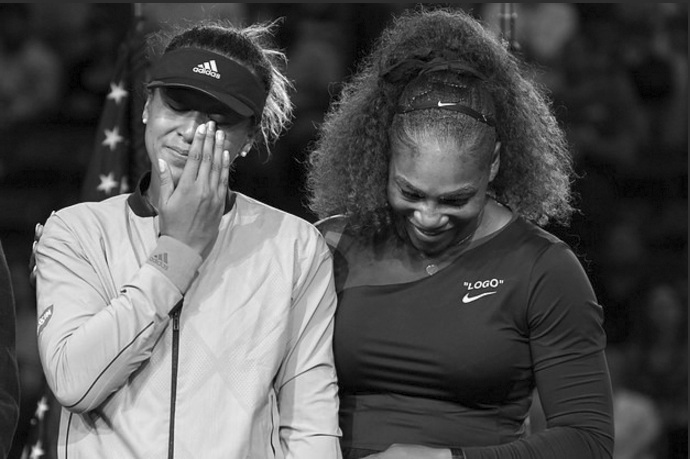This past U.S. Open Women’s Final match ended with an upset, however not the one it should have been. The match between the legendary Serena Williams and newcomer Naomi Osaka, one that should have been seen as a possible passing of the torch from one generation of strong Black female athletes to another, became a revisit of current societal ills instead.
The issue derived from the umpire of the match, Carlos Ramos, who called cheating violations on Serena Williams for receiving coaching as the match took place. Williams responded by challenging the umpire’s calls only to receive another set of violations. This back-and-forth altercation ended with a final violation on Williams after she called Ramos a “liar” and a “thief.”
The result of the ordeal was point deductions that some critics of Osaka believe to be the only reason for her victory against her idol. Had this issue remained on the court, the blame could have been pinned on anything from Ramos merely having a bad day, to miscommunication between two parties in the heat of a tense match.
However, the issue was furthered by the addition of Australian cartoonist Mark Knight, who made a rendition of the altercation. In this tasteless image, Knight depicted Williams in a Sambo-style art form and drew Osaka as a blond, white woman, effectively erasing her blackness.
For those unaware of the Sambo caricatures, this was the art style used to depict African Americans as well as other people of color with accentuated features such as large lips and making them appear purposefully grotesque.
The cartoon was met with serious backlash by figures from all levels and backgrounds. However executive chairman Michael Miller, of NewCorp, the company that owns the paper in question, defended the image as being nothing more than calling out poor behavior by an athlete. Knight even went as far as denying prior knowledge of Sambo depictions. It is here where the issue went from just a bad call, like any sports fan has yelled at some point, to something filled with vitriol.
The issue highlighted, in the worst way, is the lack of understanding of intersectionality. Williams is a woman, but she is also black. No amount of sociology can separate the two parts of identity, as any person walking today will know you are more than one component of your identity.
The issue has been made worse since Ramos has been an umpire for several matches with men who seemingly have done worse than Williams and were merely let off with a warning.
This double standard is seen in other sports like baseball and American football, where intense sentiments of anger are often expressed toward the referee or umpire; but is viewed almost as a rite of passage or part of the game.
So why then is it okay in other sports to argue, but worse when a black woman does it? No matter how you look at it, Ramos effectively did steal the spotlight from the first Haitian-Japanese US Open winner, her win is now marred in controversy.








